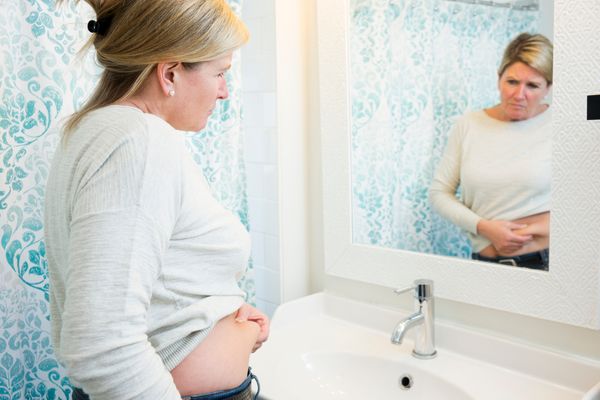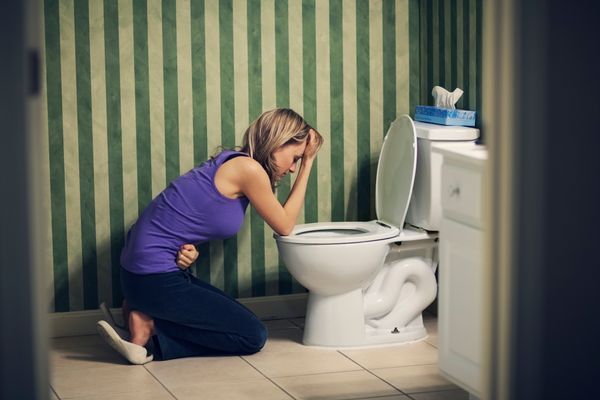Gas can make us feel uncomfortable, but no one can avoid it. And everyone's body reacts differently to different foods.
Your personal reaction to gas depends on how well you digest carbohydrates and what type of bacteria is in your intestines. Your digestive tract's efficiency also factors into how well you can get rid of gas. But, certain gassy foods lead to a bloated stomach more than others.
Try to figure out what gassy foods may be bothersome to you by trial and error, temporarily cutting back on certain foods. Then, reintroduce them into your diet to figure out what's causing your bloated stomach.
Not ready to give up the offenders? We offer some alternatives below. You can also try eating smaller portions of these gassy foods. And avoid combining two or more culprits in one sitting.
Just be sure to always speak to your health care provider before you restrict your diet. You can harm your nutrition and health by eliminating certain foods or food groups from your diet.
The culprit: Carbonated drinks
Why: These beverages contain a lot of carbon dioxide, a gas. Some of the gas gets trapped in your digestive system. This leads to discomfort, bloating and possibly cramping. Instead of soda, aim to consume plain old water, with a twist of lemon or lime, if you want more flavor.
The culprit: Apples
Why: Yes, this popular fruit offers health benefits like vitamin C and fiber. However, apples can cause bloating thanks to their higher fiber content and fructose. Still want your apples? Try cooked ones, which may be easier to digest than raw ones. Try making homemade applesauce.
The culprit: Onions
Why: This vegetable has a powerful taste. And even though you may not munch on a whole onion or eat it in large quantities, it is found in many cooked dishes and salads. To reduce its effects on your belly, stick to cooked onions. As an alternative, use fresh herbs or spices.
The culprit: Broccoli, Brussels sprouts, cabbage and cauliflower
Why: These are all known cruciferous vegetables. They are healthy and nutritious, but also known for causing gassiness. To reduce bloating, eat less of these veggies in one sitting. Or cook them, which can make them easier to digest. Alternatives include cucumbers, lettuce, sweet potatoes, zucchini and spinach.
The culprit: Garlic
Why: Garlic is often used in cooking. However, it contains fructans, which can cause bloating. Cooking garlic can reduce these effects. Or, flavor food with other spices and herbs like parsley, chives, thyme or basil. Other veggies with strong flavors that can cause bloating include shallots, leeks (the white bottom) and scallions (the white part).
The culprit: Watermelon
Why: This sweet summer treat is refreshing and tasty. But it's high in fructose, a naturally occurring sugar that is often not completely absorbed by our digestive system. And that leads to gas. Read more about Healthy Fruits You Should Be Eating.
The culprit: Beer
Why: This carbonated beverage is made from sources of fermentable carbs like maize, wheat, rice and barley. So, it contains both carbon dioxide (gas) and fermentable carbs, which both cause bloating. Water is always best. If you want an alcoholic alternative, red or white wine may cause less bloating.
The culprit: Dairy foods
Why: Yes, dairy products like milk and cheese are good sources of calcium, protein and other nutrients. However, if you can't break down lactose—the sugar found in milk and other dairy products—then dairy can cause digestive problems. Try lactose-free milk products. Or opt for milk alternatives like almond, coconut, rice or soy milk. Learn more about Signs You're Lactose Intolerant.
The culprit: Beans
Why: Beans and other legumes like lentils, chickpeas and peas, contain a lot of fiber, along with sugars that your body cannot fully break down and absorb in the small intestine. When bacteria in the large intestine break down these sugars, it produces gas. Beans are super healthy—loaded with protein, healthy carbs, vitamins and minerals—so don't give up on them. Soaking them before cooking and changing the water several times during the soaking helps. Dried lima, pinto and navy beans may cause more problems than some other beans, and mixing beans with other sugars, as in baked beans, can increase gas. Rinsed, canned beans may be easier on the system. If all else fails, check with your health care provider about using an over-the-counter digestive aid.
Remember that persistent cramping, gas, constipation or overall abdominal discomfort may be a sign of colon cancer, ovarian cancer or other problems, so talk to your health care provider if the pain persists.
Read More:
10 Easy Ways to Banish Bloat
What to Do About Those Embarrassing Bodily Noises






